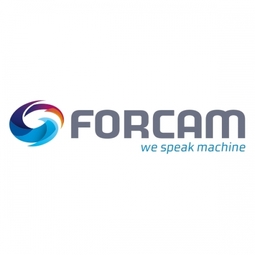FORCAM
Case Studies
Success Factors for Machine Connection
Overview
 |
Success Factors for Machine ConnectionFORCAM |
Platform as a Service (PaaS) - Connectivity Platforms | |
Automotive | |
Discrete Manufacturing Quality Assurance | |
Machine Condition Monitoring Predictive Maintenance Factory Operations Visibility & Intelligence | |
System Integration Data Science Services | |
Operational Impact
| FORCAM allows organizations to gather information on machinery, equipment and factory performance in real-time from anywhere in the world, on any device and in any language. | |
| For real-time mapping of data sets (Big Data), FORCAM is the first technology provider to offer in-memory based technology in conjunction with “complex event processing” (CEP). | |
| FORCAM’s fully web-based, cloud-enabled solution has enabled organizations to increase the productivity of machinery and equipment. | |
Quantitative Benefit
| Productivity increases of 20% or more within 12 months or less. | |
| Worldwide, more than 50,000 machines are monitored and optimized by FORCAM’s technology. | |


